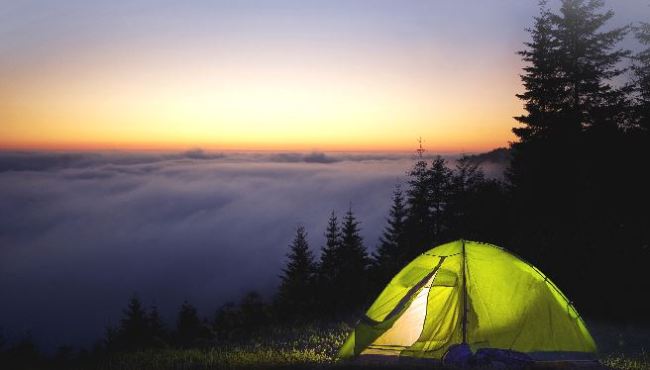In a heavily urbanized country where five-day week was introduced less than two decades ago, camping has only been a common leisure activity since the late 2000s.
However, when something takes off in Korea, it takes off.
The number of people enjoying camping has increased dramatically over the years. According to a Statistics Korea estimates, the number of Korean campers broke the 5 million mark in 2016. In comparison, the country’s population came to just over 51 million in the same year.
Along with the popularity of camping, the market for related products and services has grown exponentially, with some estimating the value of the camping industry to be as high as 1 trillion won ($928 million).
However, when something takes off in Korea, it takes off.
The number of people enjoying camping has increased dramatically over the years. According to a Statistics Korea estimates, the number of Korean campers broke the 5 million mark in 2016. In comparison, the country’s population came to just over 51 million in the same year.
Along with the popularity of camping, the market for related products and services has grown exponentially, with some estimating the value of the camping industry to be as high as 1 trillion won ($928 million).

Local governments have responded to the rising popularity of camping by subsidizing various related projects, and set up camp sites across the country, even in the heart of Seoul.
In the spring and autumn, the riverside parks along the Han River are jam packed with tents set up by families and friends “camping” without “camping out.”
“Taking a tent out to the Han is great on the weekend, I can relax in the tent and let the kids’ dad play with the kids,” Choi, a 45-year old housewife said. She added that she doesn’t like camping in the more traditional sense, describing it as “outdoor housework.”
For those who do enjoy camping but do not have the time or the equipment, there are a number of camping, or at least camping-themed, services available.
Although the fad has somewhat faded, restaurants that offer a camping atmosphere can still be sighted quite easily.
There are even “camping pocha” establishments that cater to those looking for a drink in a camping atmosphere in a wagon, without ever leaving the questionable comforts of a plastic stool.
The word “pocha” is short of the word pojangmacha, refers to street-side restaurant-cum-bar establishments.
Many of these restaurants are not much different from other barbecue restaurants, with meat, and seafood on the menu, but some are outdoors with tents in place of tables.
“I like camping, but I can’t go all the time, and for me, it’s the food, the barbecue. That’s what I like the most about camping,” Park Jung-in, a customer at a camping restaurant in Goyang, Gyeonggi Province said.
“It is still quite a hassle, but here, it’s all set up and when you are done you can go home without cleaning and packing up.”
Homing in on such sentiments, and the large cost of purchasing a full set of camping gear, camp sites that offer full range of equipment as well as more amenities.
“People’s standards have risen. There has to be hot water, showers and electricity. The reason is that in Korea, the camping culture is led by mothers, not fathers,” Hwang Woo-Jong a general manager of Kolon Sport Camping Park said.
“(People) are looking for facilities suitable for children as the mothers (take families) camping for the children.”
While many opt for such convenient camping experiences, or settle for the camping atmosphere of restaurants, others prefer to go all the way, opting for the so called “wild camping” method. That style of camping, which remains unusual, has given rise to camping experts.
By Choi He-suk (cheesuk@heraldcorp.com)






![[From the Scene] Monks, Buddhists hail return of remains of Buddhas](http://res.heraldm.com/phpwas/restmb_idxmake.php?idx=644&simg=/content/image/2024/04/19/20240419050617_0.jpg&u=20240419175937)




![[Graphic News] French bulldog most popular breed in US, Maltese most popular in Korea](http://res.heraldm.com/phpwas/restmb_idxmake.php?idx=644&simg=/content/image/2024/04/18/20240418050864_0.gif&u=)




![[From the Scene] Monks, Buddhists hail return of remains of Buddhas](http://res.heraldm.com/phpwas/restmb_idxmake.php?idx=652&simg=/content/image/2024/04/19/20240419050617_0.jpg&u=20240419175937)

![[KH Explains] Hyundai's full hybrid edge to pay off amid slow transition to pure EVs](http://res.heraldm.com/phpwas/restmb_idxmake.php?idx=652&simg=/content/image/2024/04/18/20240418050645_0.jpg&u=20240419100350)

![[Today’s K-pop] Illit drops debut single remix](http://res.heraldm.com/phpwas/restmb_idxmake.php?idx=642&simg=/content/image/2024/04/19/20240419050612_0.jpg&u=)